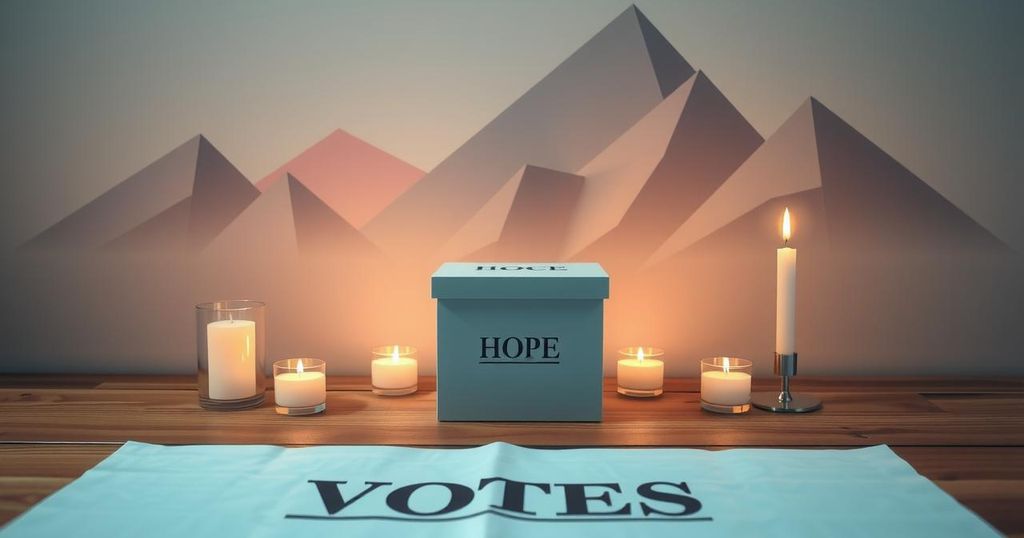Ecuadorian voters head to the polls on February 9, 2025, in a climate of escalating violence. Many citizens have been crime victims, shaping their perspectives on President Daniel Noboa’s administration. The election features 16 candidates, with Noboa and Luisa González as frontrunners. Voter sentiment reflects deep concern over safety, and many citizens are expressing their frustration through blank votes as they seek effective leadership to rein in crime and instability.
Ecuadorian voters head to the polls on February 9, 2025, in a climate of rising violence and crime, with many citizens having experienced personal victimization. A life-size cutout of President Daniel Noboa, who is seeking re-election, stands in a shop in Quito, symbolizing the impending election. In Guayaquil, residents recount alarming tales of robbery and kidnapping as they grapple with the impact of increasing crime rates on their daily lives.
The surge in violence is largely attributed to drug trafficking from Colombia and Peru, as foreign criminal organizations infiltrate Ecuador. Citizens express concern that despite Noboa’s crime-fighting measures, such as deploying the military and lowering the homicide rate, crime remains a prevalent issue. Voters will decide on Noboa’s future or potentially revert to leftist alternatives, notably Luisa González, amid frustration over safety and economic stability.
The election features 16 candidates, with Noboa and González as frontrunners. To secure an outright victory, a candidate must capture 50% of the votes or 40% with a ten-point margin over their nearest competitor. Analyst Will Freeman notes that many voters view their choices as a referendum on the previous Correismo policies rather than solely on Noboa’s accomplishments
Noboa, a banana trade heir, has seen a drop in homicide rates but a rise in kidnappings. His presidency has been controversial, marked by significant measures such as the state of emergency and unusual political decisions, including a police raid on a foreign embassy. Noboa’s governance has drawn scrutiny although his hardline stance on crime has resonated with some voters.
Voting in Ecuador is mandatory, and even inmates are provided with opportunities to cast their ballots. However, some citizens express their dissatisfaction by opting for blank votes. One resident, Dario Castro, articulates a bleak outlook on potential solutions for the violence, suggesting two extreme options: colluding with the mafia or adopting a fully aggressive stance against it.
As voters assess a dire social situation marked by personal loss and fear, their choices may reflect urgent desires for change as they hope for a leader capable of reversing the entrenched violence facing the country.
This article discusses the upcoming presidential election in Ecuador amidst a backdrop of escalating violence and crime. Over the past four years, Ecuador has seen a surge in criminal incidents, significantly impacting the lives of its citizens. This electoral event is characterized by citizens’ concerns over personal safety, their experiences as crime victims, and their evaluation of candidates’ proposals to combat the rampant insecurity plaguing the nation. President Daniel Noboa’s administration faces scrutiny for its handling of the crisis, while leftist challenger Luisa González represents a return to policies associated with previous administrations.
In conclusion, the Ecuadorian presidential election represents a critical juncture for the country as voters, many of whom have suffered crimes, consider their choices under the specter of violence. President Daniel Noboa’s re-election campaign is overshadowed by the ongoing crime crisis and contrasting proposals from candidates like Luisa González. Voters are driven by their past experiences and desire for solutions to restore safety and stability, making this election a pivotal moment for Ecuador’s future.
Original Source: apnews.com






